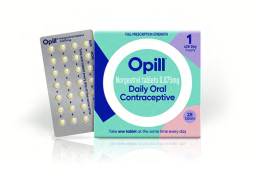
Stating that “you are what you eat” is not entirely accurate, as your identity is shaped not only by your diet but also by the myriad of microbes residing within your gastrointestinal tract and brain.
A research endeavor aimed at investigating the potential benefits of probiotic supplementation on mild cognitive impairment validated the aforementioned notion. This holds true even in the context of cognitive deterioration linked to the aging process.
To be more precise, individuals experiencing cognitive decline were administered Lactobacillus rhamnosus GG (LGG) for a duration of three months. The outcome revealed an enhancement in cognitive scores for these participants, directly linked to specific and quantifiable alterations in the composition of their gut microbiome.
“The implication of this finding is quite exciting, as it means that modifying the gut microbiome through probiotics could potentially be a strategy to improve cognitive performance, particularly in individuals with mild cognitive impairment,” said Mashael Aljumaah. He is a microbiology doctoral candidate at the University of North Carolina.
“This adds a new layer to our understanding of the microbiome brain-gut connection and opens up new avenues for combating cognitive decline associated with aging.”
Due to the presence of microorganisms, which include viruses, bacteria, and other life forms residing within the digestive system, the gut serves as both the body’s largest immune hub and a significant endocrine organ. This implies that more immune system responses are initiated and regulated, and a greater number of hormones are synthesized in the gut compared to any other part of the body.
Considering the processes of digestion and the absorption of nutrients, it’s not surprising that the diverse range of microbial species inhabiting the gut could potentially impact various aspects of our biology, extending even to cognitive functions within the brain.
The study was conducted using a double-blind approach, ensuring that neither the patients nor the researchers were aware of who received the placebo and who received the LGG treatment. Over a span of three months, individuals between the ages of 52 and 75, who experienced mild cognitive impairment, displayed an improvement in their neurological indicators. This improvement was found to correspond with a decrease in the prevalence of a specific group of microorganisms called Prevotella within their microbiota.
“By identifying specific shifts in the gut microbiome associated with mild cognitive impairment, we’re exploring a new frontier in preventive strategies in cognitive health,” said Aljumaah said. “If these findings are replicated in future studies, it suggests the feasibility of using gut microbiome-targeted strategies as a novel approach to support cognitive health.”
Currently, the researchers are engaged in comprehending the precise mechanisms through which microbes like Prevotella exert an influence on the gut, leading to enhancements in brain health. Specifically, their investigation delves into the manner in which specific molecules generated by these bacteria modulate the functionality of neuroprotective hormones capable of traversing the blood-brain barrier.
While commercial probiotics encompass a wide array of species, it is crucial to bear in mind, before hastily purchasing one, that this study centered around a solitary species. The outcomes observed were closely tied to a reduction in a single genus—a genus that might not be universally present across all gut microbiomes.
Nonetheless, this discovery holds significant importance, albeit being just one within an extensive series of revelations that concerns gut health and overall well-being.



